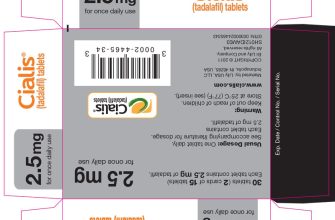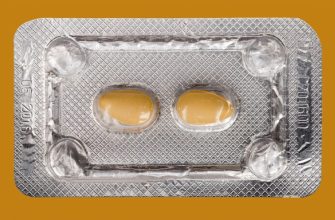Taking 40 mg of Cialis daily isn’t recommended. The typical starting dose is much lower. Your doctor should determine the appropriate dosage based on your individual health and medical history.
Always discuss your medication with your physician. They can assess potential risks and side effects related to higher dosages like 40mg, and help you find a safe and effective treatment plan. Incorrect dosage can lead to unwanted side effects.
Consider factors like age, pre-existing conditions (particularly heart problems), and current medications when discussing Cialis with your doctor. They’ll factor all this in to prescribe the safest and most beneficial dose for your specific needs. Remember, self-medicating can be dangerous.
Never exceed the prescribed dosage. Seeking professional medical advice is paramount for safe and effective use of Cialis or any medication. Your doctor will provide personalized guidance, ensuring optimal treatment and minimizing risks.
40 mg Cialis: Understanding the Dosage
The recommended starting dose of Cialis is 10 mg. A 40 mg dose is significantly higher and should only be considered under strict medical supervision. Your doctor will assess your individual health profile, including any pre-existing conditions and medications you’re currently taking, before determining if a higher dose is appropriate and safe for you.
Higher doses don’t necessarily equate to better results. In fact, increasing the dosage beyond the recommended range can heighten the risk of side effects without proportionally increasing efficacy. Common side effects include headache, flushing, muscle aches, nasal congestion, and indigestion. More serious, though less common, side effects include vision changes, hearing loss, and prolonged erection (priapism).
Always discuss your desired dosage with your physician. They will weigh the potential benefits against the risks associated with a 40 mg dose. Open communication about your expectations and any concerns is paramount. Self-medicating with Cialis, particularly at higher doses, can be dangerous. Follow your doctor’s instructions carefully and report any adverse reactions immediately.
Remember, Cialis interacts with other medications. Providing your doctor with a complete list of your current medications is crucial to avoid potentially harmful interactions. This includes prescription drugs, over-the-counter medications, and herbal supplements.
Regular checkups with your doctor are advisable, especially when taking Cialis at a higher dosage, to monitor your health and adjust the dosage as needed. This ensures you receive optimal treatment while minimizing potential risks.
Cialis 40mg and Potential Side Effects
Taking 40mg of Cialis is significantly higher than the recommended dosage, and carries increased risk of side effects. Common side effects include headache, flushing, nasal congestion, and indigestion. These are usually mild and temporary. However, higher doses increase the likelihood of experiencing more severe reactions.
Less common, but potentially serious side effects include prolonged erection (priapism), vision changes (including sudden vision loss), and hearing problems (including sudden hearing loss). Seek immediate medical attention if you experience any of these.
Back pain and muscle aches are also possible. These usually subside within a few days. If you experience severe or persistent pain, consult your doctor.
Remember, individual responses to medication vary. This information is not a substitute for professional medical advice. Always discuss the risks and benefits of Cialis 40mg with your physician before taking it. They can help determine if this dosage is appropriate for your health and medical history.
When to Consult a Doctor About Cialis Dosage
Always talk to your doctor before changing your Cialis dosage, especially if you experience side effects. This includes changes in vision, hearing, or prolonged erections (lasting more than 4 hours). A medical professional can assess your individual health status and determine the safest and most effective dose for you.
Dosage Adjustments Based on Health Conditions
Certain health conditions may necessitate dosage adjustments. If you have heart problems, kidney disease, liver disease, or blood pressure issues, discussing your Cialis use with your doctor is crucial before starting or altering your dosage. They can help determine if Cialis is appropriate for you and, if so, recommend the correct dose based on your specific needs. This is especially relevant for those taking other medications, as interactions can occur.
Addressing Side Effects
If you experience headaches, flushing, nasal congestion, or indigestion after taking Cialis, contact your doctor. They can help manage these side effects, potentially adjusting your dosage or suggesting alternative treatment options. More serious side effects, like vision or hearing changes, require immediate medical attention.







